White Privilege
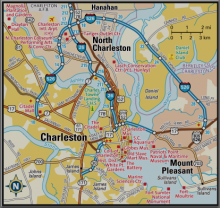
For the past thirty years my family has vacationed in Charleston, S.C. I spent eight years living, going to school, and working in Charleston; I met my wife there, got married there, and it is still a place we count as home when people ask.
The shootings at Mother Emanuel Church in Charleston let loose a flood of memories long shoved into the recesses of my mind. One of these was when I was the youth director for a large white affluent congregation, and the youth groups at Mother Emanuel and my church performed a joint Youth Sunday service in the late 90s.
Driving from Asheville, N.C, to Charleston shortly after the shootings, my heart grew heavy as I wondered what to do when we arrived. Nothing I envisioned captured the heaviness I felt; the need to be useful. I decided to sleep on it.

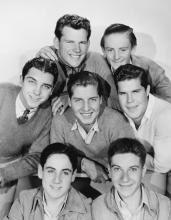
White privilege manifests at college fraternities

I went to college thinking political activism was sexy. Living in a large city gave me unparalleled access to protests for countless good causes. Chanting at anti-war marches and getting arrested on behalf of climate change legislation would make interesting party stories, I thought. I quickly hopped on the Occupy Chicago bandwagon, a movement which calls for a more equitable wealth distribution, but whose leaders and participants were largely white college graduates. None of my organizing work focused on racial inequalities, but stayed in the realm of money in politics, equitable banking practices, and climate change.
My journey took a profound turn at an organizing training where I proudly stated I was there because my faith called me to advocate for the least of these. In response, a powerful, albeit brash, leader in Chicago’s movements angrily characterized me as an “activist do-gooder” who was fueled by the need to be a good white person. This label devastated me. I’m outspoken, passionate and willing to lead, I thought, so why can’t people see me as a resource? I took a break from the organizing world feeling disillusioned and miffed.
This attitude forced me to ask myself, why was I drawn to political activism in the first place? What was it that drew me to the movements in which I involved myself? And why was I so offended that someone had questioned my motives?
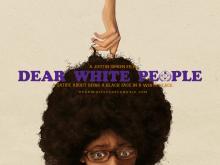
It might be tempting for some viewers to see Dear White People as over-the-top. To see some of its characters as caricatures, or the offensive party that makes up its climax — with white students dressed in blackface — as unrealistic. But it’s not. For evidence, you only need to look as far as the credits, which show photos from similar events at other schools across the country. And when the president of Winchester claims that “racism is over in America,” it doesn’t sound too different from Bill O’Reilly’s similar claim on The Daily Show just last week.
Dear White People is clever, loving, angry satire. It’s a multi-faceted exploration of race in a time when such portrayals are needed, like peroxide on a deep cut. The film sometimes falters in its process, but delivers the goods when it matters most. The fact that it comes so stingingly close to reality is stunning. It’s funny. It’s sad.

I’ve been calling it the Summer of Helplessness.
From the conflict in Gaza that has left more than 1,000 civilians dead, to the downing of Malaysia Airlines Flight 17 over the skies of Ukraine, to the Ebola breakout getting worse by the day, to the shooting of yet another unarmed black teenager here in the U.S., the news of late is enough to make a person feel paralyzed with helplessness and despair. My prayers these days are of the tired, desperate sort: How long, O Lord? Will you hide your face from us forever?
But when it comes to violence and oppression, we are rarely as helpless as we think, and this is especially true as the events unfolding in Ferguson force Americans to take a long, hard look at the ongoing, systemic racism that inspired so many citizens to protest in cities across the country this week.
I’ve heard from many of my white friends and readers who say they aren’t sure how to respond to the anger and grief they are watching on TV or hearing from their black friends. They want to be part of the solution but don’t know where start. They may even feel a little defensive when they hear people talking about white privilege or inaction on the part of white Christian leaders. I’m in the process of learning too, but as I’ve listened to people of color whose opinions I trust, I’ve heard them issue several calls to action we can all heed.
![By Federal Bureau of Investigation Workers (Federal Bureau of Investigation) [Public domain], via Wikimedia Commons](https://sojo.net/files/styles/medium/public/blog/Mississippi_KKK_Conspiracy_Murders_June_21_1964_Victims_Chaney_Goodman_Schwerner.jpg)
Saturday marked the 50th anniversary of the senseless slaughter and lynching of civil rights workers James Chaney, Andrew Goodman, and Michael Schwerner during Freedom Summer in Mississippi. They gave their lives to insure that every person in Mississippi would have the right to vote and be a full citizen of this nation. This interracial trio believed with all their hearts that it was worth it to put their bodies on the line for racial justice and dignity, and they paid the ultimate price.
We have come a long way in the last 50 years, but the recent deaths of Trayvon Martin and Jordan Davis in Florida remind us that much work remains, and that white supremacy may have taken different forms, but it is alive and well. And today, white supremacy operates most powerfully at the subconscious level. And it has to do with an innate feeling of superiority.
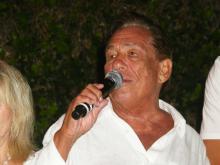
Dear White People,
We need to take a long, painful look in the mirror. The image we see will make us uncomfortable, but, tragically, it is us.
The image staring you back at you is the image of Donald Sterling.
We have found a new sense of self-righteousness by uniting against Sterling for his racist comments. All of us white people can agree that Sterling is a despicable human being and he deserved to be banned from the NBA for life and to be fined.
We are morally outraged. We hate Sterling with a united and perfect hatred.
But make no mistake, we are Donald Sterling.
I MET PASTORS Harvey, Alton, Charles, and Joel in Houston’s 5th Ward, a black neighborhood that in 1979 earned the title of “the most vicious quarter of Texas.” I was drawn there by a sermon I’d preached on Psalm 23 called “An experiment in crossing borders.” In it I asked my congregation, “What border is God leading you to cross? And who is waiting for you on the other side?”
Little did I know the profound impact that sermon would have on me.
Nearly five years later, I remember when these men stopped being “pastors at black churches on the other side of the 5th Ward border” and became “my people,” deeply connected as members of the body of Christ.
It was a moment of profound truth-telling, when I realized I was controlled more by the values of Western “racialized” culture than I was by the liberating gospel of Jesus and the alternative community to which I had given my life. It became clear to me that I’d affirmed myself and my identity through the lies of racial privilege, and done so at the expense of my brothers and sisters in Christ.
Michael Emerson, a sociologist from Rice University, provides us helpful language to understand how race works. Rather than analyzing racism (concretized for most of us through powerful images of slavery, hooded white supremacists, separate drinking fountains, and individual acts of hate), he invites us to analyze how our society is racialized.

Where do we go from here?
From the denial of racism to the naming and facing of racism.
If we are to move forward, we must acknowledge that racism is alive and well in the American psyche. It continues to function as a demonic force with devastating consequences for us all. To be white in America is to benefit from a system of power and privilege whether or not one has ever uttered a racist thought or committed a racist act.
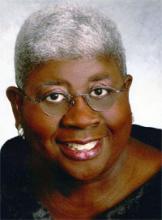
I suppose I could live my life saying, "I will never allow myself to try to understand white people. I will cut myself off from them. I will live my life as a black woman, and I'll just keep white people in boxes." But to do that means to keep myself cut off from a part of myself. And if white people do that about black people, I think the same is true: It keeps them cut off from a part of themselves.
For those of us who are Christians, I don't think we have any choice in the matter. I think God has made it clear that we're to be reconciled to God and each other. And if we're to be reconciled to each other, that includes everyone who happens to be in the world with us.
Reconciliation demands that you not take sides; it demands that you take a stand, I think—a stand that's maybe a merging of a lot of different pieces that represent several different kinds of philosophical stances. I think that one who chooses a road of reconciliation must be willing to look at more than one side of the coin.
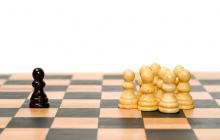
Suddenly, it seems, white people are seeing the racial divide as looming larger than before. Race, so often dismissed by white people as an insignificant factor in contemporary U.S. society, has acquired meaning—meaning that they were working hard to ignore.
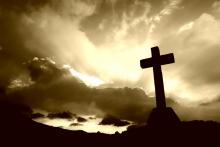
Summertime is "revival season" for Christians of various denominations. Traditionally revivals, or "Great Awakenings", have preceded most major movements in American society, like the Revolutionary War and the Civil War. Revival involves not only a supernatural outpouring of the Holy Spirit but an intense time of confession, repentance, and crying out to God to make us and our communities right.
This summer will mark two major Civil Rights anniversaries: the 50th Anniversary of the March on Washington and 58th Anniversary of Emmitt Till’s death. It is my belief that providence provides us with divine appointments that can be overlooked as coincidences if we do not have the spiritual eyes to see. This summer appears to be one of those times of divine appointment.
The American Church has never truly mourned and repented of its original sin of racism, and sadly this sin has infected the Body of Yahshua (Christ) globally.

While the consequences of social privilege are alarming for numerous reasons, we are reminded that such systematic inequalities are by no means unique to the current day and age. For example, during Jesus’ ministry he encountered a predominant culture that distributed a wide variety of elite benefits based upon gender, class, ethnicity, and other forms of false favoritism. However, one of the primary distinctions of Jesus’ life, which he continually modeled for his disciples, was a prophetic confrontation with unjust structures of social privilege.
As Jesus accompanied women, tax collectors, lepers, prostitutes, and others firmly placed on the underprivileged margins of society, he repeatedly sought the reversal of embedded discrimination and disadvantage. In doing so, not only did Jesus promote Good News of eternal life for after death, but he sought to “let the oppressed go free” (Luke 4:18) for the fullness of life after birth.
While Jesus continually endorsed the revolution of unjust social privilege, and although he taught his followers to do likewise in his name, the harsh reality is that privilege based on prejudice is profitable, which makes it difficult – if not impossible – for those in power to surrender voluntarily
During my travels connecting with communities as part of an extended listening tour for Jesus Died for This?: A Satirist's Search for the Risen Christ, I hung about a bit with Mark Van Steenwyk, co-founder of Missio Dei, an anabaptist intentional community in Minneapolis, Minnesota. I was intrigued to learn about their work with the Christian Peacemakers Team (CPT), so I decided to shoot him an email to see what's in store for them during spring 2011.
More Than Equals, co-authored by Chris Rice and the late Spencer Perkins, is considered one of the pivotal books in the Christian racial reconciliation movement that found its greatest momentum in the early and mid-1990s.